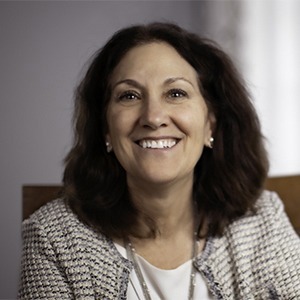Cleveland Clinic’s Successful Reactivation Program Returns to the Basics

Sue Omori, executive director, marketing account services, Cleveland Clinic
In this digitally saturated age, we’re all running as fast as we can to keep up with the latest marketing trends and technology innovations.
But for Cleveland Clinic — a digital juggernaut — a simple reactivation program designed to bring back patients with chronic conditions is working well.
Cleveland Clinic has been running reactivation programs for 10 years. “What people forget about sometimes is how to re-engage with the audience that they already have, with patients that they already have,” says Sue Omori, executive director, marketing account services at Cleveland Clinic.
Omori recently shared the results of Cleveland Clinic’s successful re-engagement program for patients with chronic conditions. This program follows fundamental direct marketing principles and drives a healthy contribution margin. “The idea is to help our population team stay on track with their patients,” Omori says. “And we want to help them reactivate patients to Cleveland Clinic.”
Cleveland Clinic’s data scientists hold chronic condition codes on patients. The reactivation program targets patients with chronic conditions, including diabetes, hypertension, A-Fib, asthma, congestive heart failure, and others. “We’re looking for patients that haven’t been seen in 13 to 30 months, and they don’t have a future appointment,” Omori says. Geographically, the target group is patients living in a seven-county area in northeast Ohio; the program was recently expanded to Florida. The age range is 22 to 85.
“That’s about 10,000 patients a month,” Omori says. Initially, the target group receives a “simple, inexpensive mailer.” If they didn’t respond, they would receive the mailer again in the second month.
This year for the first time, the mailings were split 50/50 between mail and email. “We all have so many patients that have given us permission to contact them by email,” says Omori. “Why don’t we leverage those email lists?” The goal was to try to migrate from mail to less expensive email.
Learn how the effort worked out:
Following the Fundamentals Still Works: Cleveland Clinic Case Study
Best regards,
Matt Humphrey
President
Start Your Online Access Today
Not a member yet?
Sign up for a FREE trial membership »
And don't forget: Once you've signed up as a member, you can add up to 9 colleagues for no additional charge with our Group Membership Upgrade. It's an incredible value.
Related Articles
Following the Fundamentals Still Works: Cleveland Clinic Case Study
What Mistakes Do Healthcare Organizations Make in Digital Communications, and How Do We Solve Them?
How Scripps Health Uses Marketing Automation to Drive Results
How Three Health Systems Used Their MarTech Stack to Improve Patient Experience and Drive Growth

